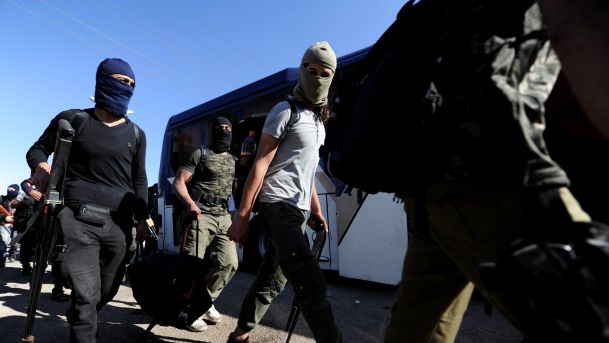London – Moscow exerted on Tuesday major pressure on opposition factions fighting in Homs and urged them to sign a “de-escalation” agreement for the city’s countryside to be inked in Cairo similar to what happened during the Damascus Ghouta truce.
However, choosing Egypt as a sponsor for the truce already upset Ankara, while 11 factions expressed their reservations on the issue. These factions included Ahrar al-Sham al-Islamiya and Jaish al-Izza, which insisted that Turkey sponsor the agreement.
A copy of the draft agreement received by Asharq Al-Awsat includes 14 articles with one section deleted for stipulating that Russia and other parties respect a timetable to withdraw all foreign militias from Syria.
In the new draft agreement, Moscow also deleted another section that calls for the commitment of the Syrian regime and its allies to the cessation of fighting in all the de-escalation zones.
However, the draft paper demanded the need to fight Hay’at Tahrir al-Sham and to totally reject the presence of ISIS in the area, with a need to fight it on the cultural and military levels.
“The opposition should be committed to the ceasefire… and welcome the establishment of a de-escalation zone in the countryside of Homs, where a demarcation line would be drawn to mark the lines of contact between the warring parties,” Article 1 of the agreement said.
Article 4 stipulated that the Syrian opposition in Homs should pledge that any militant from Hay’at Tahrir al-Sham should not be present in its controlled areas and to take “all the needed measures to prevent the return or emergence of those militants.”
The same article also said both regime forces and opposition factions should refrain from violating the agreement, while the regime forces should stop launching any air strike on opposition-controlled areas.
In the draft agreement, parties also agreed that all necessary construction equipment and materials should be allowed in the de-escalation zone.
